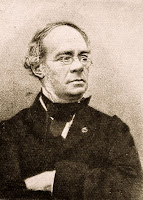Dad, your suffering is over and you are now at rest - may you remain in an eternal state of peace.
I love you very much...
You will be missed.
xo
"it is for the finale that Mozart has reserved all the resources of his science, and all the power, which no one seems to have possessed to the same degree with himself, of concealing that science, and making it the vehicle for music as pleasing as it is learned. Nowhere has he achieved more…It is the greatest orchestral work of the world which preceded the French Revolution.”Nearly 230 years after Herr Mozart put his finishing touches on his monumental work, "Jupiter" continues to impress audiences and astonish even the seasoned musicians who perform it. Notoriously demanding in execution, Jupiter was ground-breaking at it's premiere for it's use of employing five individually unique melodies simultaneously - making the work a laborious feat for the orchestra and a delightful treat for audiences around the globe!
 |
| "Le Mozart des Champs-Elysées" ("The Mozart of Champs-Elysées") Jacques Offenbach turns 197 today. |
 |
| An esteemed Italian in Paris: composer and Paris Conservatoire Director Luigi Cherubini |
“Enough, young man! You are now a pupil of this Conservatoire!"
 |
| French composer Fromental Halévy would prove instrumental in young Jacques early foray into the art of musical composition. |

 |
| Gustav Mahler |
“It seems that the Ninth is a limit. He who wants to go beyond it must pass away. It seems as if something might be imparted to us in the Tenth which we ought not yet to know, for which we are not ready. Those who have written a Ninth stood too close to the hereafter.”
[1] Completed.
[2] The so-called "Curse of the Ninth" was heavily based in folklore and highly problematic. Discover more at the following link: Curse of the Ninth (at Wikipedia)
 |
| Giuseppe Verdi |
 |
| Galileo Galilei |
 |
| Orlando di Lasso |